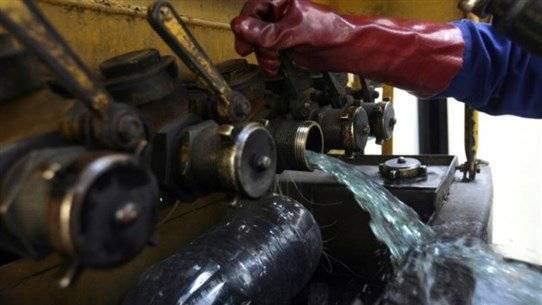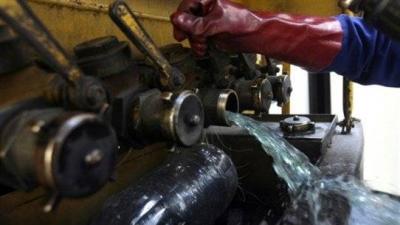The shortage of diesel fuel in the market is attributed to the rationing implemented by importing companies in light of rising global prices, which increases the inventory value over time as the price of diesel has surged by approximately $220 in less than a month. Since the price of diesel issued by the Ministry of Energy is based on the average prices of the last four weeks, this indicates that prices will rise further in the upcoming period, thus increasing the illegal profits of the importing companies by about $1.75 million daily due to selling the inventory at higher prices. This conclusion is based on realistic calculations. Between August 5 and August 29, global diesel prices gradually increased by $220. Companies translated this into rationing the delivery quantities in the market and deviated from the official pricing, previously reflected in the pricing tables issued by the Ministry of Energy, by raising the price per can by $4 in cash. According to the pricing table issued by the Ministry of Energy, the price per can is set at $20.06, while the can is delivered to generator owners at around $24.
Given that the local market's demand is estimated at around 8.5 million liters of diesel daily, or approximately 440,000 cans, the additional profits extracted from consumers amount to $1.75 million daily. The prevailing pricing chaos and the absence of monitoring by the concerned authorities, especially the Ministry of Economy, have allowed companies and traders to control the quantities of diesel distributed in the market, failing to meet actual needs, which has created confusion since last week due to the shortage of the material or the possibility of its depletion. The first reflections appeared in the increased hours of private electricity generators' rationing.
In reality, there is no issue with the importation of diesel and the available quantities since the Governor of the Central Bank of Lebanon, Riad Salameh, decided last summer to lift the subsidy on this material entirely, or more accurately, to cease financing its import through his dollars or via the "Sayrafa" platform. Since that time, companies have been securing the necessary dollars to import diesel from the parallel market, selling it according to the price set by the Ministry of Energy, which takes into account fluctuations in global prices and the exchange rate of the dollar in the free market.




